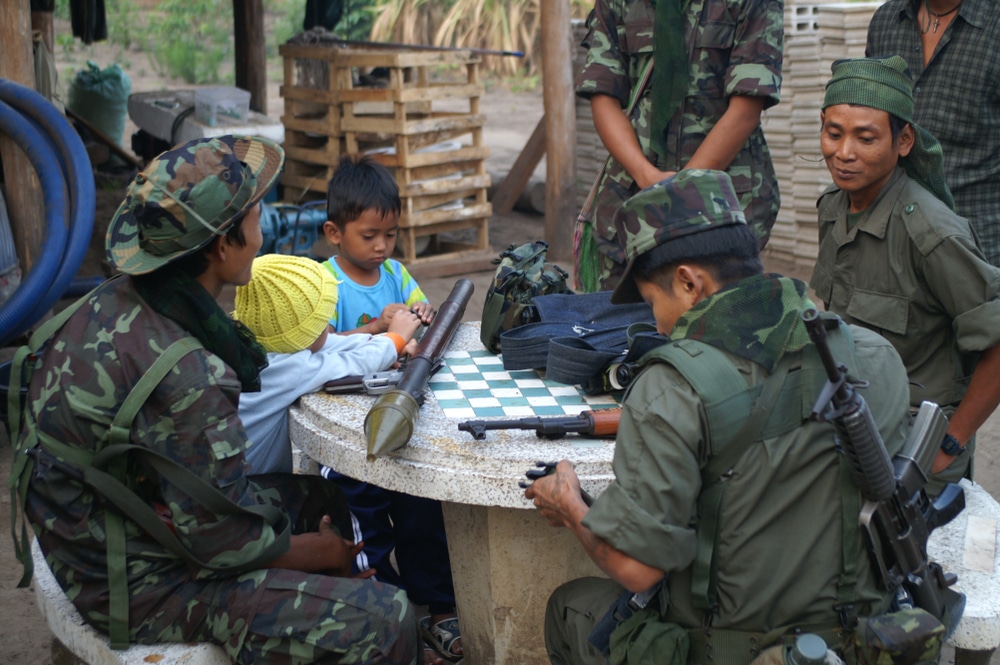The Karen National Union (KNU), one of Myanmar’s oldest ethnic fighting forces, initially captured Myawaddy from the Myanmar military, targeting the army’s Infantry Battalion 275. The battalion’s base, located approximately 4 kilometers to the west of Myawaddy, was overrun on April 11 by the KNU and its pro-democracy allies. This offensive was part of a broader alliance strategy that has seen several ethnic rebel groups make substantial gains across various regions of Myanmar since last October.
#Myanmar (#Burma) 🇲🇲: People’s Defense Forces (#PDF) and #Karen National Union (#KNU) ambushed Military convoy including BRDM-2MS armored car.
Fighters used a 84mm Carl Gustaf M2 / MA-84 recoilless gun and captured weapons/ammo:
14.5x114mm #Chinese 🇨🇳 CS/LM2 machine gun with… pic.twitter.com/YsD7rLK0om
— War Noir (@war_noir) April 23, 2024
However, the control over Myawaddy was short-lived. The KNU recently made a strategic withdrawal from the town, a move precipitated by the actions of a contending armed Karen group, the Karen National Army (KNA). The KNA, which had previously been affiliated with the Myanmar military as a border guard force, took a pivotal role in aiding the junta soldiers who had fled to a riverside spot near one of the town’s key bridges connecting to Thailand’s Mae Sot district.
The KNA’s involvement is particularly noteworthy due to its past. Originally part of the Karen National Liberation Army (KNLA), the group was known as the Border Guard Force before rebranding itself as the Karen National Army. This group has been controversial for its alleged involvement in protecting local economic interests, including casino resorts accused of harboring organized crime activities.
Photographs and videos circulated on social media show a handful of these soldiers raising the Myanmar national flag at their previously lost base. The back-and-forth has had a severe impact on the local civilian population. The conflict has disrupted Myawaddy’s role as a conduit for trade, which annually amounts to more than $1 billion. The recent escalations led to airstrikes by Myanmar’s military, which, combined with ground skirmishes, forced around 3,000 residents to flee across the border into Thailand seeking safety.
#Myanmar 🇲🇲: junta soldiers are back at the 275th Battalion in #Myawaddy to raise their flag.
Reports say fighters of the KNA faction, a Border Guard Force, allowed them through to reestablish control. pic.twitter.com/AwMuW3GGLg
— Thomas van Linge (@ThomasVLinge) April 23, 2024
As the situation in Myawaddy begins to stabilize with most residents returning from Thailand, the overall atmosphere remains fraught with uncertainty. Thailand’s foreign ministry has expressed a cautious optimism about reopening the border crossing and has proposed hosting a meeting under the auspices of ASEAN to discuss potential solutions to the crisis.
Expanded Coverage:






